What Eating an Entire Pint of Ice Cream Does to Your Body

It’s happened to all of us. Whether you’re going through a terrible breakup or you’re just an innocent victim of mindless eating, we’ve all found ourselves at the bottom of a newly opened pint of ice cream. We know—once you start, it’s hard to stop! But as comforting and delicious as this frozen dessert can be, aren’t you a bit concerned about what the fat and calories are doing to you? Yup, we thought so.
So, we’ll just cut to the chase: Is eating an entire pint of ice cream detrimental to your health? The simple answer is no, not as long as you don’t make it a habit. But just because you can, doesn’t mean you should spend your nights on the couch watching Netflix and spooning into a container of rocky road. Ice cream is still loaded with enough fats, sugars, and calories to replace half a day’s worth of your intake, and indulging this habit can lead to some not-so-pleasant consequences. Are you wondering, “is ice cream bad for you?” We were curious, too, which is why we asked the experts. Read on to learn about exactly what happens to your body when you down an entire pint of ice cream.
(Plus, if you’re looking for something savory to eat, be sure to skip the 8 Worst Fast-Food Burgers to Stay Away From Right Now.)
Your obesity risk increases
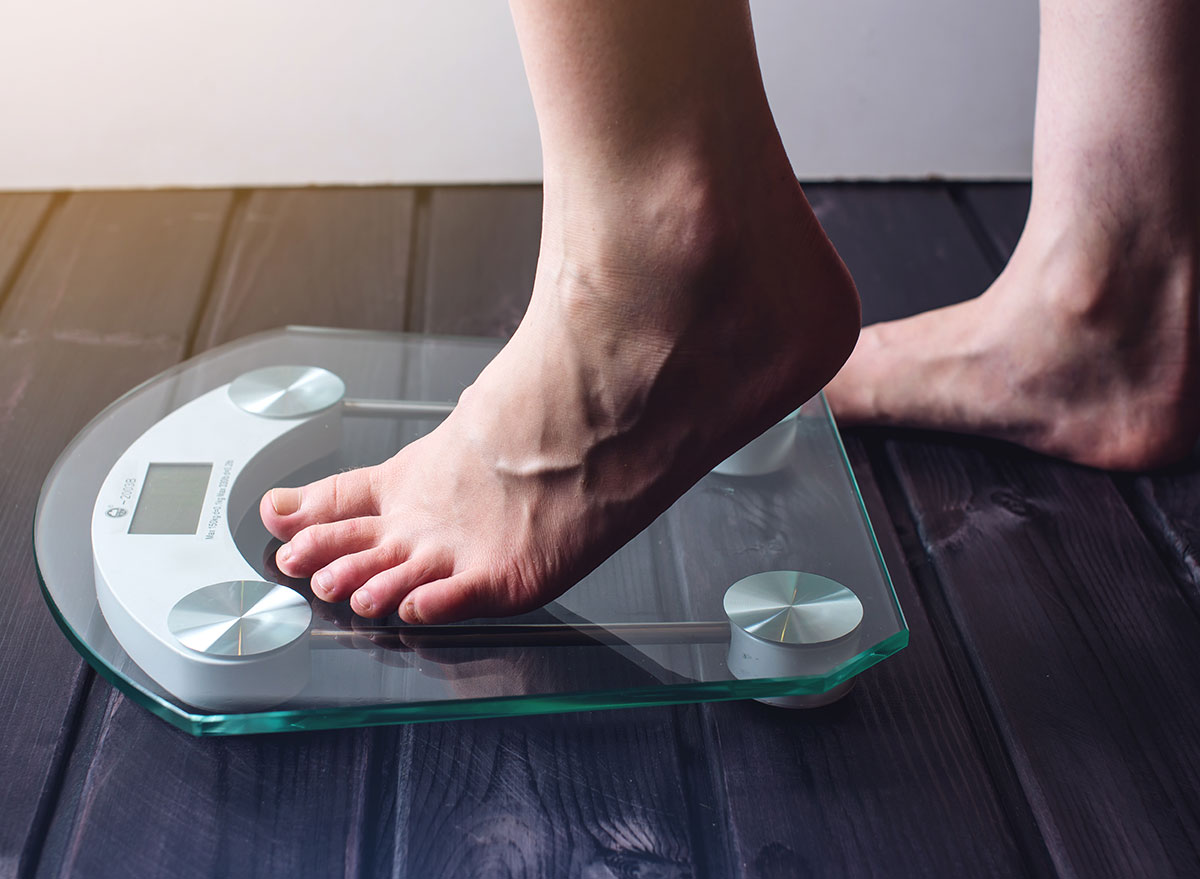
“A pint of ice cream could have up to about 1,000 calories, and for some people, that’s more than half their daily intake,” says registered dietitian Edwina Clark, RD, APD. That means if you keep up that habit, it could result in some pretty hefty weight gain. “Extra calories above and beyond your needs will lead to weight gain,” says Melissa Joy Dobbins, RD, a registered dietitian and Founder of Sound Bites. “If it’s something you do on a regular basis, it’s going to add up.” However, if you’re eating a pint of cream as often as a presidential election rolls around, then there’s no need to worry.
And if you’re trying to lose weight, try one of these 10 Healthy Frozen Desserts.
Your blood sugar stays somewhat normal
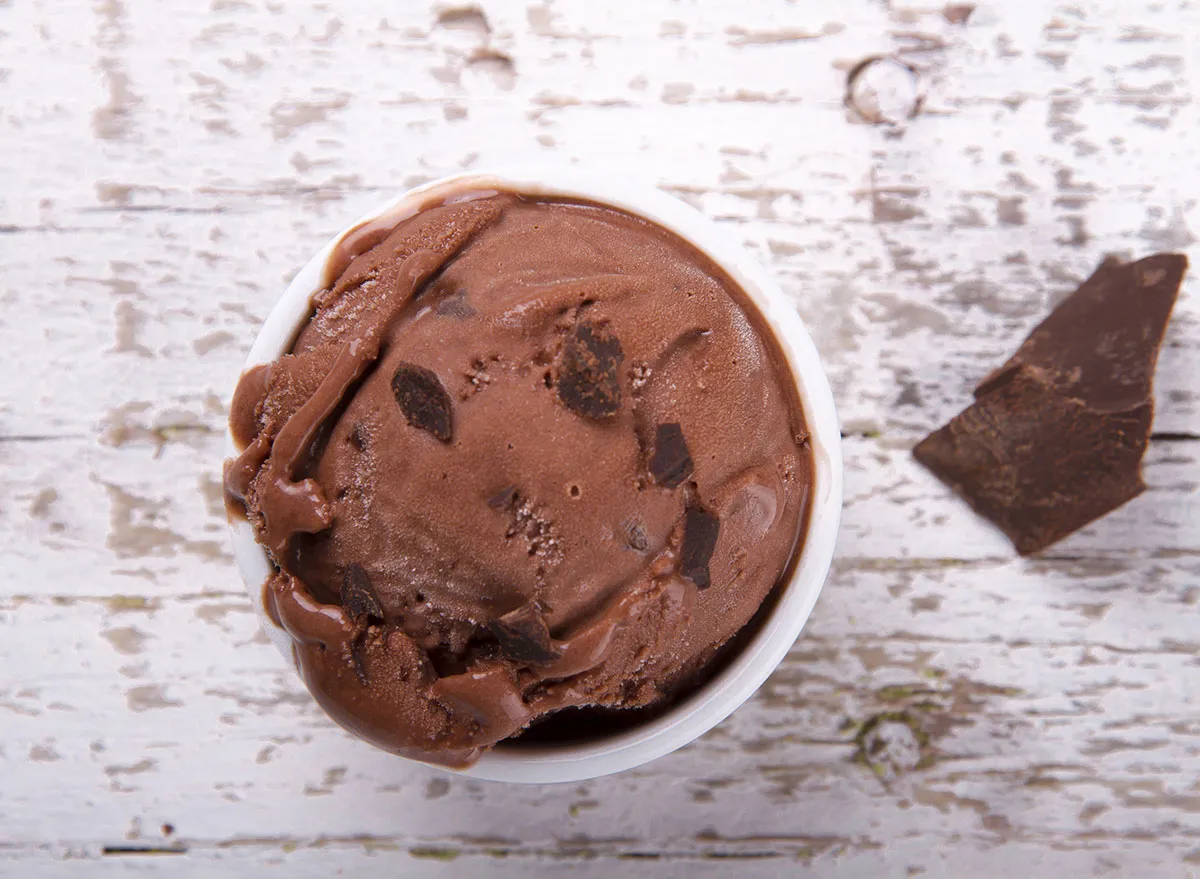
Surprise! You may think that a pint of ice cream is enough to make your blood sugar go haywire, but it’s not as high as you think. “Anytime we eat food, our blood sugar is going to go up,” says Dobbins. Unless you’re diabetic or have reactive hypoglycemia, your blood sugar should still stay in a normal range.
Your blood pressure isn’t affected

Another “phew!” moment, right? “Dairy has calcium, potassium, and magnesium, which are three important minerals for keeping your blood pressure in check,” Dobbins says.
You’ll gain belly fat
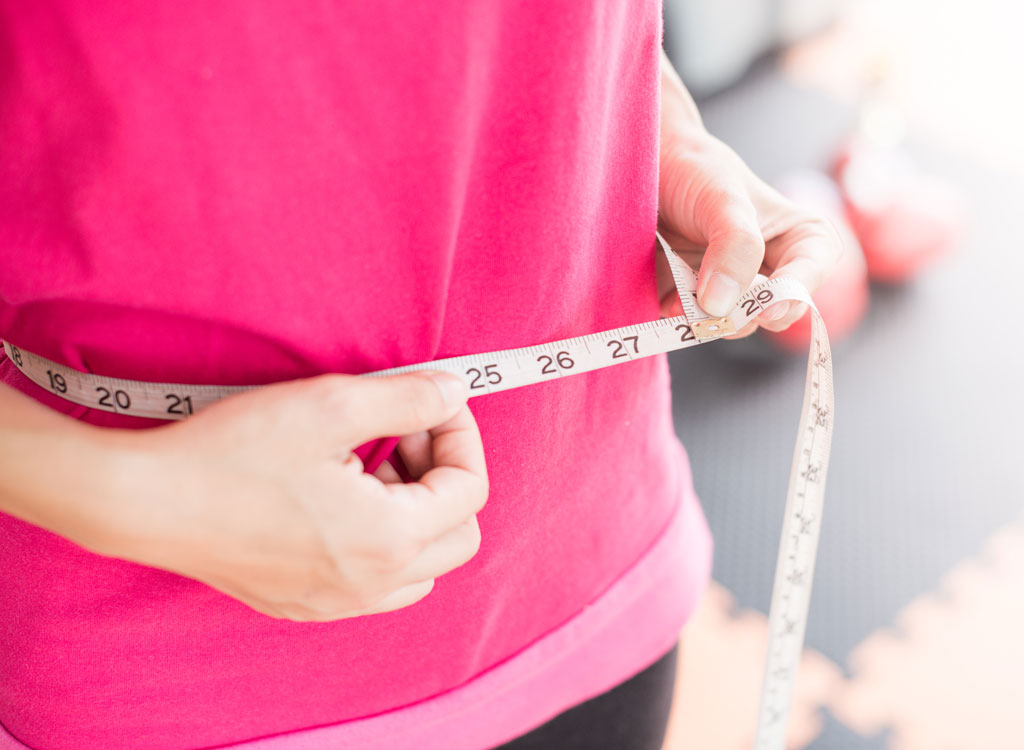
Ice cream is a carb-heavy food, and eating a lot of refined carbohydrates results in belly fat deposition, says Clark. A pint could have about 120 grams of carbs; and, although carbs are a great source of energy, you probably won’t be using it up right away. Any carbs that the body doesn’t use up are stored as fat on top of the fat content that the ice cream originally has, explains Dobbins.
You’ll feel happier

Mint chocolate chip will do that, huh? “There is some sort of satisfaction for indulging an ice cream craving,” says Clark. But it’s not just the awesome feeling of indulgence. This also has to do with the carbs, which can lead to a small increase in serotonin, a neurotransmitter that’s responsible for lifting your mood.
Your muscles will get stronger

This is not your excuse to inhale ice cream in the name of strong bones, but there’s some truth in that the sugars from the frozen treat can help promote muscle building and prevent protein breakdown with the powerful insulin spike they cause. Celebrity trainer and diet expert Jay Cardiello says, “Ice cream can be beneficial up to two hours after a workout.” So, if you have the craving, jump on these incredible ice cream brands before you miss your chance.
Your bones will get stronger

We often associate ice cream with junk food, but not much as a dairy product. However, because ice cream is indeed a dairy product, it contains a good amount of nutrients, calcium being one of them. And when calcium binds with phosphorus (also found in ice cream), it can help with bone strength.
Your heart disease risk bumps up
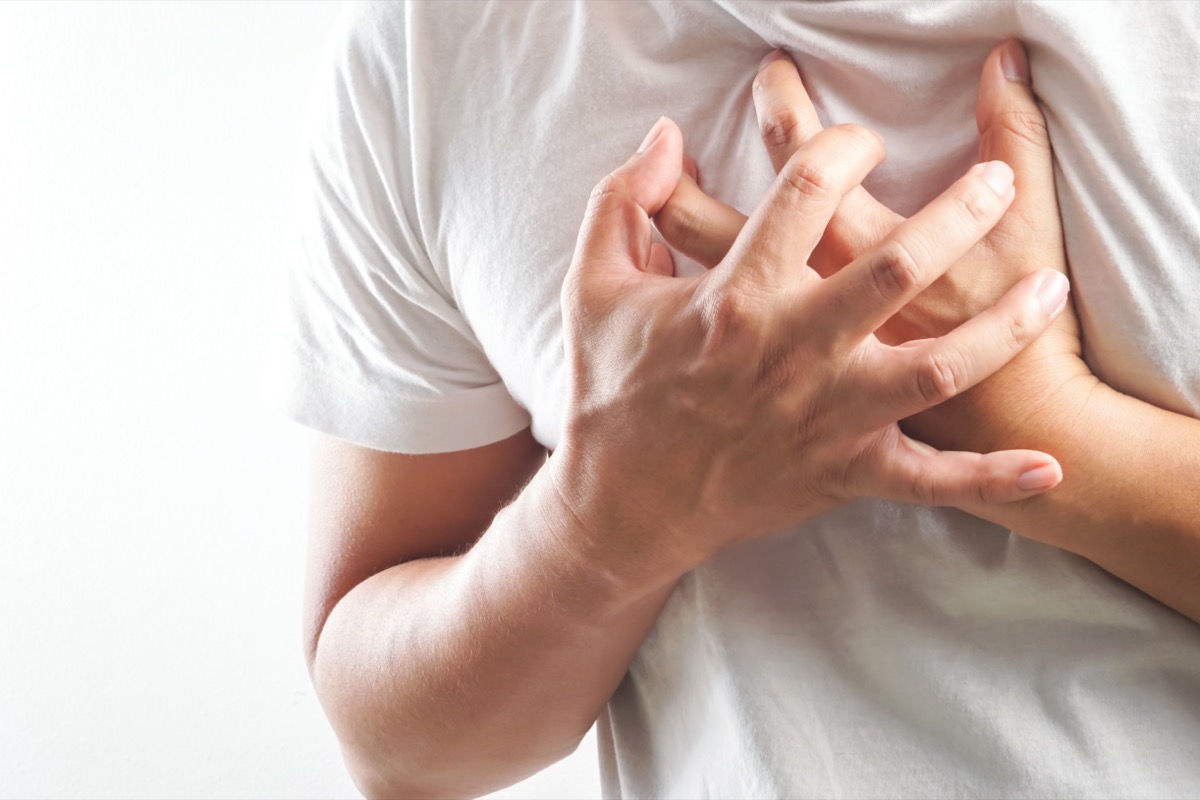
Back to the bad news. There are about 40 grams of saturated fat in that frozen treat you’re eating. “After eating a pint of ice cream, you’re likely to see a spike in triglycerides and cholesterol, which are fancy names for ‘blood fats’,” says Clark. “These levels may drop as the ice cream moves through your system. But if they remain high, they can increase your risk of heart disease, especially when combined with other risk factors like high blood pressure and being overweight.”
Your brain will be foggier

If you’ve ever treated yourself to a cup of ice cream in an attempt to beat the 3 p.m. slump, you likely caused more harm than good—and not just to your waistline. Not only can a cup of vanilla have up to 10 grams of artery-clogging saturated fat and 28 grams of sugar, but an extensive review in the journal Nutrients found that saturated fat and sugar-rich diets can diminish cognitive skills and memory. And that’s just a cup of ice cream; imagine what a whole pint will do! There is a lot of added sugar in ice cream, which can lead to you feeling spacey after consumption, says Clark.
And if you’re curious, here’s What Happens To Your Body When You Eat Low-Calorie Ice Cream.
You’ll feel sluggish

With any meal that’s rich in flavor, you’ll start to feel a little lazy. But if you think you’re going to fall into a soothing, blissful sleep, you’re dead wrong. Because ice cream is high in fat, it may “take longer to digest, and often cause bloating and indigestion that interfere with a sound night’s rest,” offer The Nutrition Twins, Lyssie Lakatos, RDN, CDN, CFT and Tammy Lakatos Shames, RDN, CDN, CFT, authors of The Nutrition Twins’ Veggie Cure.
You’ll get bloated
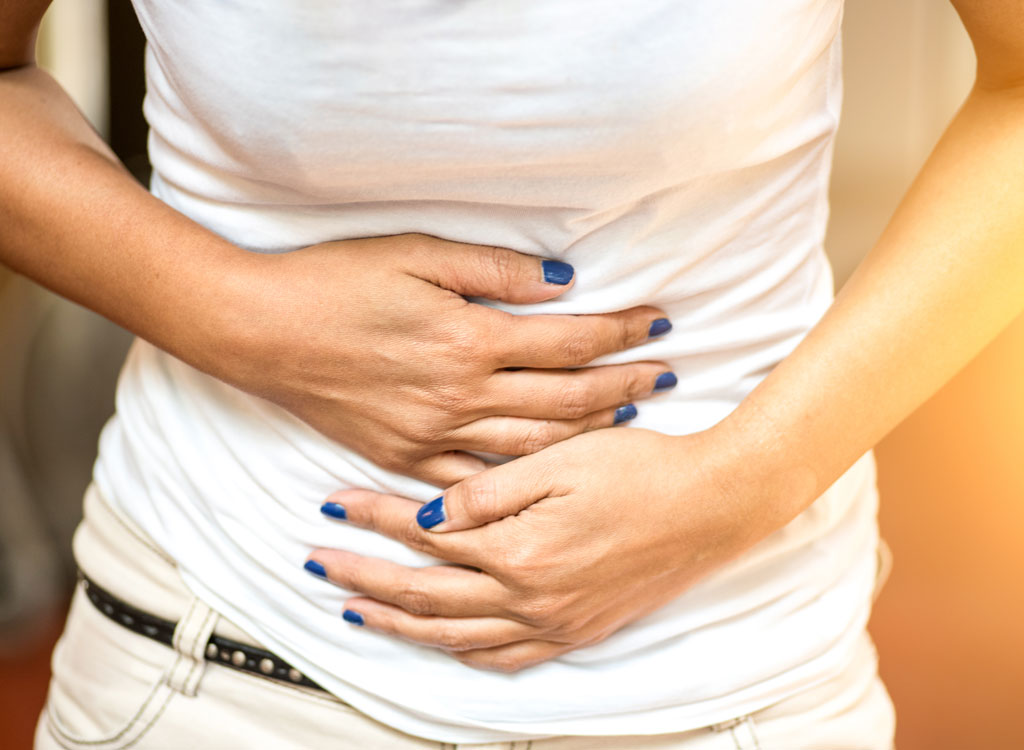
Your body takes a while to fully digest a pint of ice cream. (Blame it on the high-fat content.) Therefore, you’ll feel a little bloated after consumption. Avoid these bloat-inducing foods and habits to keep yourself from looking and feeling puffier than you are!
You won’t feel energized

Contrary to popular belief, you won’t get as much as a sugar rush as you would think by downing a pint of ice cream. “You wouldn’t feel a burst of energy because it’s not a stimulant,” says Dobbins. “Sugar provides energy, but it’s wrapped up by a bunch of fat, so it delays the release.”
It can boost your fertility

What a great excuse for future mamas to eat ice cream! A study published in Human Reproduction found that women who ate high-fat dairy (like ice cream) increase their chances of becoming pregnant than those who stuck with skim milk and fat-free yogurt. Women who ate ice cream two or more times a week reduced their risk of infertility by 38%.
You may get addicted
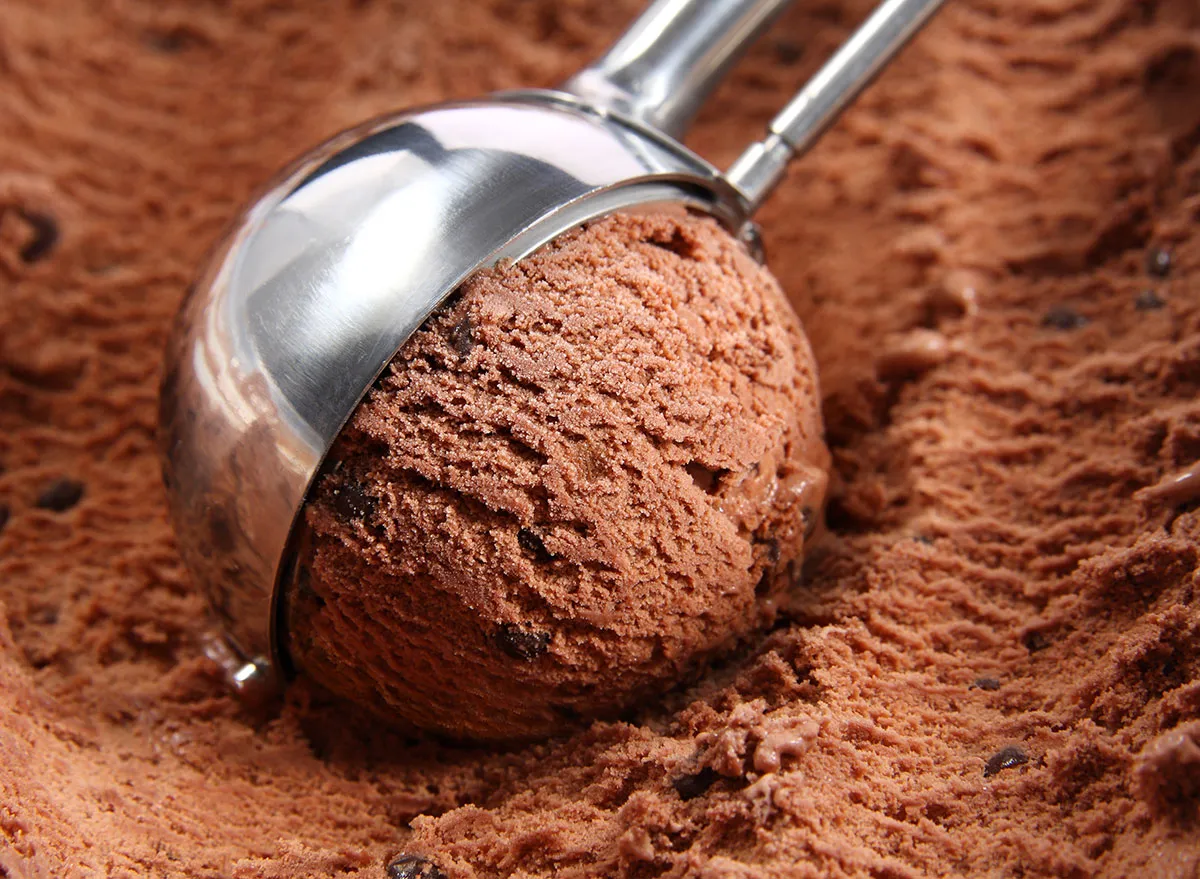
Ice cream is just too good not to keep spooning, but be aware of how much you’re eating. A study published in the American Journal of Clinical Nutrition found that people who ate ice cream frequently enjoyed it less as time went on. Scientists concluded that the frozen treat alters the reward center of the brain, making it less pleasurable and sending a signal to eat more to achieve the same euphoric feeling.
So, keep up the pint-eating habit and you may find yourself devouring an even bigger container of ice cream—and then you’re going to have a big problem. Can’t imagine cutting back on the sweet stuff? Start by employing these easy ways to stop eating so much sugar!